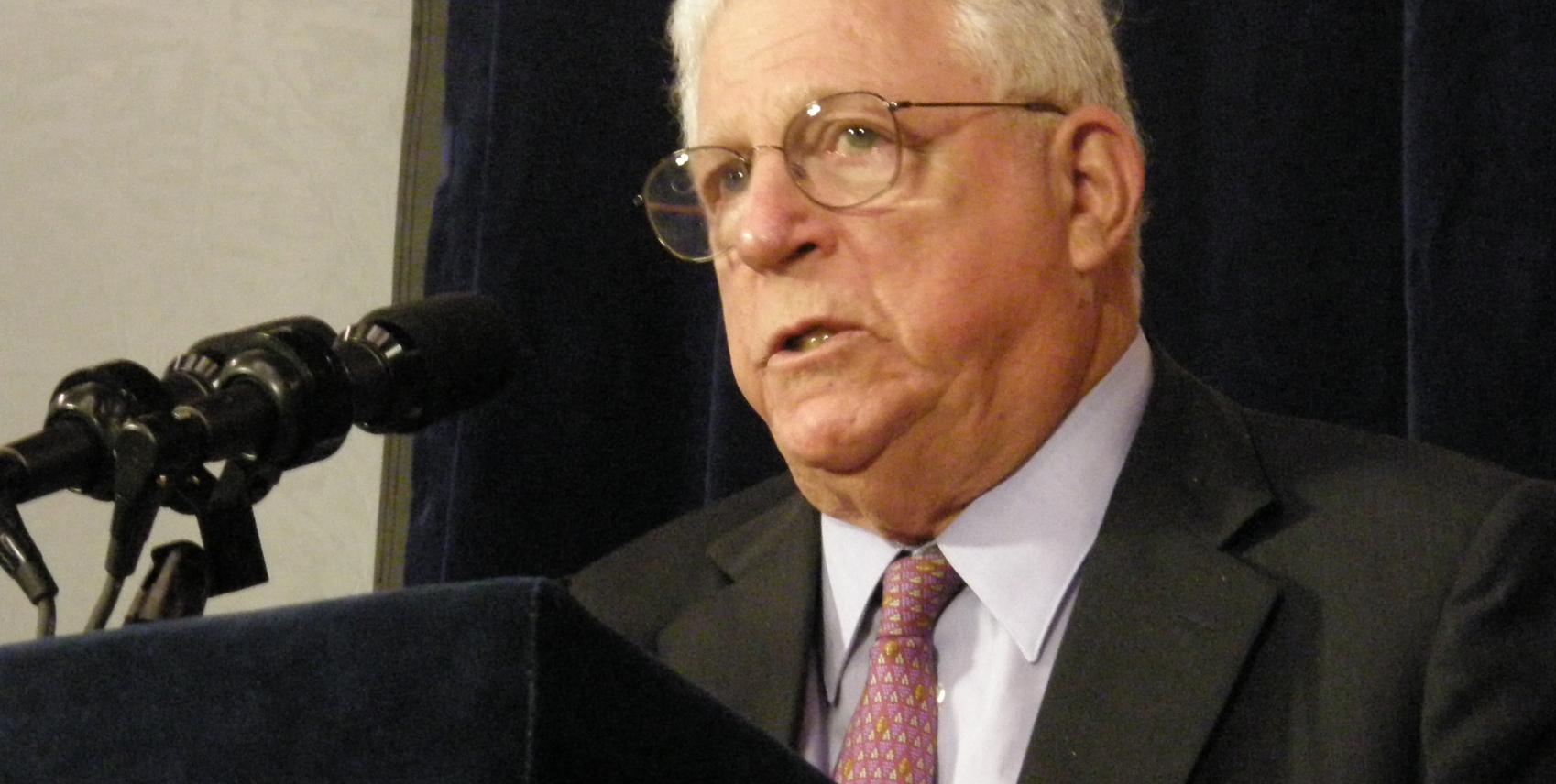New York lost a civic titan over the weekend. Richard Ravitch, possibly the most impactful public transit executive the city ever had, died on Sunday in Manhattan. He was 89.
Ravitch was among the last of a dying breed, as many have noted — a construction heir who had oodles of money but also a sense civic pride and a desire to make the society work better for everyone.
"When we think about the modern MTA, he is one of the individuals who believed in this institution so much, that literally he's credited with saving it back during the tumultuous times of the 1980s," Gov. Hochul said on Monday at an unrelated event at Penn Station. (More on that later.)
Ravitch's chief innovation as MTA boss was the authority's five-year capital programs, and the fateful decision to fund those five-year plans through bank loans. As Gothamist reported last week, Ravitch pushed through state legislation in 1981 to let the MTA borrow $2.5 billion to pay to get its then-crumbling transit system up to a "state of good repair."
The effort saved the MTA by isolating system maintenance as a discrete funding need and setting up debt financing as its (politically viable) funding mechanism. Ravitch told Gothamist it was "in many ways" his life's "greatest achievement."
But the capital plans and associated debt quickly became a piggybank for tax-averse politicians to pay for "shiny object" expansion projects like East Side Access. The boondoggle train station, which opened this year after decades in development, not only added $11 billion to the debt, but is actually expected to lose the MTA money from its operating budget in the coming years.
Today the MTA's debt is $44.3 billion and growing — while being paid back by riders. Around one-fifth of fare and toll money goes to paying back banks — nearly quadruple what went to pay back debt when Ravitch was in charge. (Gothamist recently did a deep dive on debt.)
Of course, Ravitch can't be blamed for later generations of politicians' irresponsible spending decisions, many of which he opposed. The lieutenant governor under Gov. David Paterson bluntly defended the debt service approach in that Gothamist piece, in what may have been in his final interview.
"Everything that was built in this city was built with debt," Ravitch told the outlet. "How else do you get the money?"
RIP Richard Ravitch. A truly great New Yorker, advisor to many --- including us --- raconteur and believer in the rarely reached potential of government to do good and great things. https://t.co/7Xg5WjqjeG
— Reinvent Albany (@ReinventAlbany) June 26, 2023
For more remembrances of the "savior of the subways," check out Gothamist, NY1, The City, Politico and the WSJ.
In other news:
- Congestion pricing is happening. New Jersey's congressional delegation spilled the beans (and Gov. Hochul's office later confirmed) that that federal government has given the final sign-off for the MTA's Central Business District Tolling Program. Hochul's big announcement is today. Stay tuned to Streetsblog for more coverage. (Politico, NY Times, Daily News, NY Post)
- Meanwhile: Gov. Phil Murphy has hired Chris Christie's Bridgegate lawyer as New Jersey "explores all legal options" to stop the transit-funding, congestion-cutting toll plan. (NorthJersey.com)
- Speaking of governors, Gov. Hochul pulled MTA CEO Janno Lieber out of authority board proceedings to announce that the state and Amtrak are moving ahead to remodel Penn Station, after the project was "decoupled" from above-ground real estate development boondoggle. An alternative proposal from Italian developer ASTM will be unveiled later this week. (NY Times, Crain's, NY Post, CBS New York, Gothamist)
- Nothing to see here folks. (amNY, Daily News)
- New Yorkers who use the MTA's Access-A-Ride e-hail program face a fare hike. (The City, amNY, Daily News)
- Also in obits: the inventor of the lithium-ion battery, who was 100. (NY Times)
- And finally — this won't put an end to the placard scourge, but it feels nice:
I've had it.
— Christopher Greene (@Cripister) June 25, 2023
Join my movement.
cc: @placardabuse pic.twitter.com/imPJHmAxbi






